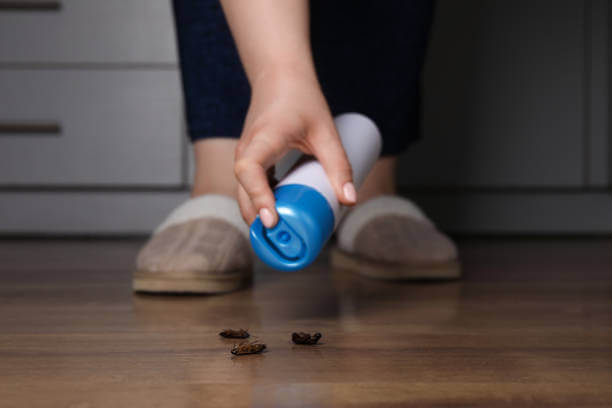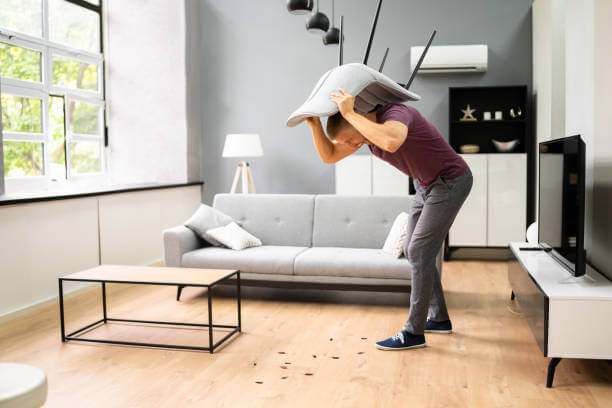As the warmth of summer arrives, so does the increased potential for pest infestations in rental properties. Tenants play a crucial role in maintaining a pest-free environment by taking preventive measures. This article provides essential reminders for tenants to safeguard their attics, basements, closets, and bathrooms from unwelcome critters during summer.
Do you understand why hotter months are prime time for pests? Are you looking to keep your home bug-free over the summer? We explore the dos and Don’ts and vital summer reminders for tenants to Prevent Pest Infestations. If you want to enjoy a comfortable and pest-free summer in your rental home, stick around till the end.
Why Are Pests More Active During Summer?
Besides sunny days, blue skies, and general warmth, summertime is notorious for an increase in potential pest infestations. It’s essential to understand that this correlation is not a coincidence. Tenants play a crucial role in maintaining a pest-free environment by taking preventive measures, and knowing when unwelcome critters are most likely to attack can help you prepare. Here are a couple of reasons pests are more active during summer:
-
Temperature
One of the most obvious reasons pest infestations are more prominent during the summer is because of the rising temperatures. More insects are likely to seek shelter in your home to avoid the sweltering heat as the ground heats up, and with the right conditions, your house could be perfect for breeding.
-
Moisture
Increased rainfall during summer months often means the air is moist, making your home more conducive for pests that thrive in damp locations.
-
Food
Leftover food and freshly cut grass are abundant food sources for pests. Delaying in removing such things from your home can attract insects looking for a stable food source. If you’re struggling with unwelcome critters, a local property manager can connect you with a reliable pest control company.
Do’s and Don’ts of Pest Control During Summer

Do’s
- Cleaning Regularly: As the famous saying goes, prevention is better than cure, and keeping living spaces clean is the best way to control pests. Ensure your home is free from food crumbs, spills, and debris that can attract pests. Clutter also provides space for these insects and rodents to live and breed, eliminating unnecessary junk you might be harboring.
- Sealing Entry Points: Limit pests’ entry to your home by closing gaps, cracks, and openings in doors, windows, and walls. Be particularly vigilant about the common caterpillars found in homes, as these can sometimes enter through small, unnoticed openings.
- Storing food Properly: Store food in airtight containers to discourage pests from accessing their food sources. Also, remember to dispose of garbage containing scraps that might be on the property.
- Regular Trash Disposal: Dispose of trash regularly in sealed bins to avoid attracting pests with food odors. Prevent pest infestation with rentals by discussing ensuring frequent waste disposal.
- Landscaping Maintenance: Trim bushes, trees, and shrubs away from the property to prevent pests from using them as entry points. Stray and overgrown bushes or branches provide a hiding space or path for critters to enter your home discreetly.
Don’ts
- Leaving food Out: Avoid leaving food uncovered on countertops, as it can attract pests. If you’re curious about the types of pests you might be dealing with, reviewing potato bug bite pictures can help identify if these critters are a part of your pest problem.
- Ignoring Leaks: Leaving leaks unattended can encourage water accumulation, leaving a source of hydration or a breeding spot for insects and vermin in your home.
- Neglecting Clutter: A disorganized and cluttered home creates a conducive environment for critters to hide without detection.
- Overwatering Plants: Overwatering your plants allows water to pool in their vase or flower bed, providing pests with the necessary water to thrive on your property.
- Using DIY: While DIY pest control can help, avoid overusing pesticides, which can harm the environment and health.
Who is Responsible for Pest Control in a Rental?
The responsibility for pest control in a rental property is typically outlined in the lease agreement and governed by local laws. In many cases, landlords are responsible for ensuring the property is pest-free at the start of the lease term. On the other hand, tenants are generally responsible for maintaining a pest-free environment throughout their tenancy.
These duties include taking preventive measures to avoid infestations, such as proper cleaning, waste disposal, and promptly reporting any signs of pests. However, if an infestation occurs due to structural issues or landlord negligence, the landlord may still be responsible for addressing the problem. Clarifying pest control responsibilities in the lease agreement is essential to avoid misunderstandings.
Conclusion
In conclusion, proactive pest control during summer is a shared responsibility between landlords and tenants. Understanding the reasons behind increased pest activity in warmer weather and following the do’s and don’ts of pest prevention are essential steps in maintaining a pest-free rental environment.
Tenants play a crucial role in daily maintenance and preventive measures. From keeping your environment clean to reporting leaks, you can effectively prevent a pest infestation for a stress-free summer in several ways. If you suspect you already have one or need to clarify your responsibilities in preventing an infestation, talk to your landlord or property manager.

